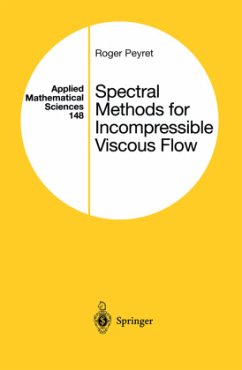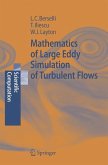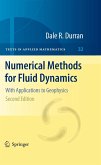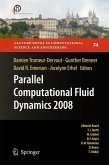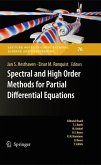The objective of this book is to provide a comprehensive discussion of Fourier and Chebyshev spectral methods for the computation of incom pressible viscous flows, based on the Navier-Stokes equations. and confidence in the numerical results, the re For reasons of efficiency searchers and practitioners involved in computational fluid dynamics must be able to master the numerical methods they use. Therefore, in writing this book, beyond the description of the algorithms, I have also tried to provide information on the mathematical and computational, as well as implementational characteristics of the methods. The book contains three parts. The first is intended to present the fun damentals of the Fourier and Chebyshev methods for the solution of differ ential problems. The second part is entirely devoted to the solution of the N avier-Stokes equations, considered in vorticity-streamfunction and velocity-pressure formulations. The third part is concerned with the so lution of stiff and singular problems, and with the domain decomposition method. In writing this book, lowe a great debt to the joint contribution of several people to whom I wish to express my deep gratitude. First, I express my friendly thanks to L. Sirovich, editor of the series "Applied Mathematical Sciences," who suggested that I write the book. Many thanks are also addressed to my colleagues and former students who contributed to the completion of the book in various ways. I am happy to thank P. Bontoux, O. Botella, J.A. Desideri, U. Ehrenstein, M.Y. Forestier, J. Frohlich, S.
From the reviews: "Spectral Methods for Incompressible Viscous Flow is a clear, thorough, and authoritative book ... . The author, throughout the book, frequently points out topics that are beyond the scope of this book and gives references to where such information is found. This makes the book an excellent resource for the entire field. ... this is an excellent book, which can serve both as a textbook for those who want to learn about spectral methods, as well as a reference for practitioners solving the Navier-Stokes equations." (Sigal Gottlieb and David Gottlieb, SIAM Review, Vol. 45 (2), 2003) "The importance of spectral methods in obtaining the solutions of boundary value problems in a variety of situations of physical and engineering interest is well-known. ... This book gives a good understanding of spectral methods which deal with the flows of incompressible viscous fluid governed by Navier-Stokes equations. ... On the whole, this book is an excellent text for graduate students or researchers interested in learning spectral methods and in their application to incompressible fluid flows, and is a good addition to any library." (Adabala Ramachandra Rao, Zentralblatt MATH, Vol. 1005, 2003) "The author sets out 'to provide a comprehensive discussion of Fourier and Chebyshev spectral methods for the computation of incompressible viscous flows, based on the Navier-Stokes equations.' He has succeeded admirably. The book ... provides a clear exposition of the associated computational techniques, and gives information on the implementation of these techniques. ... It will appeal to applied mathematicians and CFD-oriented engineers at the post-graduate level and to anyone teaching or undertaking research on problems described by the Navier-Stokes equations. This book is highly recommended." (G de Vahl Davis, Applied Mechanics Reviews, Vol. 56 (1), 2003)

